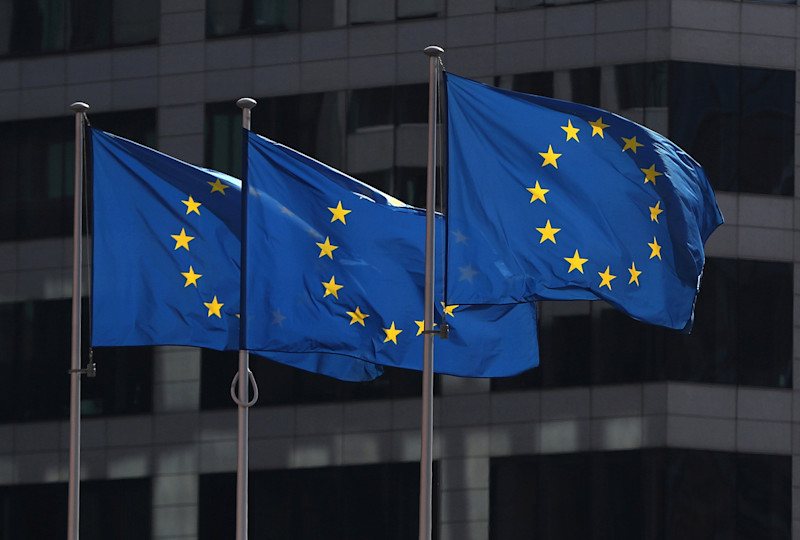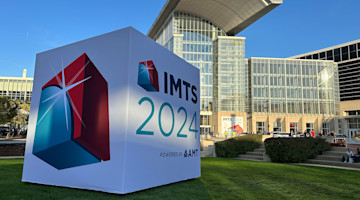With one of the industry’s major manufacturing technology shows, EMO Milano, coming up in October, we thought we would focus this week’s European news on Italy. With an April record-breaking PMI above 60, substantial government investment incentives, job growth not seen since 2018, a new infrastructure program, and progress with renewable energy development, the outlook is quite promising. For more industry intel and other tidbits, read on.
In 2020, the output of the Italian machine tool industry was down by nearly 24%. According to UCIMU, the Italian Machine Tool, Robot, and Automation Manufacturers’ Association, a full recovery is expected in 2021. The governmental incentives to foster growth, simplify public-private partnership, promote R&D, and increase FDI attractiveness include generous investment tax credits of up to 50%. This has resulted in an increased demand for manufacturing technology, both Italian-made and foreign.
According to Bloomberg, since the beginning of the year, Italian manufacturing has picked up at its fastest pace in nearly three years, also thanks to demand from Europe and North America. Output continues to increase in a manner comparable to the early 2000s.
The April manufacturing PMI rose to an all-time high of 60.7, up from 59.8 in March. Although there was a slight 0.4% decline for Q1 2021, the Italian GDP greatly improved from the previous quarter's 6.6% decrease.
Italy’s job creation is the strongest since 2018. Pre-production inventories need to be replaced fast, and finished goods are selling at a record level.
In the coming months and years, Italy is expected to spend substantial public money to modernize its infrastructure. Rail would be nearly 1% of the country’s GDP, power generation over 0.75%, and telecoms over 0.4%. These are higher percentages than in any other European country. Total expenditure for the “Next Generation Italia” is estimated to reach about $300 billion.
Among the first to utilize the new funding is the government of Veneto, who is looking for partnership in building 1,200 low-environmental-impact (mainly electric) passenger ships to replace large cruisers and other old-type vessels operating in the Venice lagoon.
ENI, an Italian global energy giant, aims at reaching the installed power capacity of 5 GW in 2025 and up to 60 GW by 2050, generated by renewables only. In March 2021, it formed a joint venture called GreenIT with CDP Equity for the construction and management of electric plants using photovoltaics and wind power.
ENI is also working with Novis Renewables LLC from New York and the Massachusetts Institute of Technology (MIT) to develop joint renewable energy projects in the United States.
Italian gas infrastructure specialist SNAM has announced plans to develop global hydrogen-related mobility solutions and applications. 70% of its pipeline system is already hydrogen-ready. Their plan is to build an “energy bridge” between Europe and North Africa.
Fiat Chrysler Automobiles, together with the French PSA division of Stellantis, is nearing the completion of its $5.5 billion spending program to launch electric and hybrid models to increase utilization at FCA’s Italian-based plants. It includes a new full-electric minicar, Jeep hybrid models, and electrified models for Maserati and Alfa Romeo.
The newly formed automotive group Stellantis has released figures for Q1, reporting growth in all regions and net revenues of $42 billion. In Europe, the group increased its market share to 23.6%.
Leonardo, the Italian/British aerospace group, recorded a 7.7% increase in Q1 revenues YOY. Through its U.S. arm, it has completed $200 million in contracts for the U.S. army in the field of command and surveillance systems. With the French company Thales, it has been developing two satellites for monitoring the earth’s surface for “safety-related” needs. It has also been implementing multimillion-dollar contracts to supply weather radar to customers in the Americas, Europe, and the Asia-Pacific.
Over the last decade, the volume of U.S. investments in Italy has been growing steadily to $35 billion, the highest since 2019. The U.S. remains among the top five investing countries.
For more information, please contact Hubert Sawicki at hsawicki@AMTonline.org.






